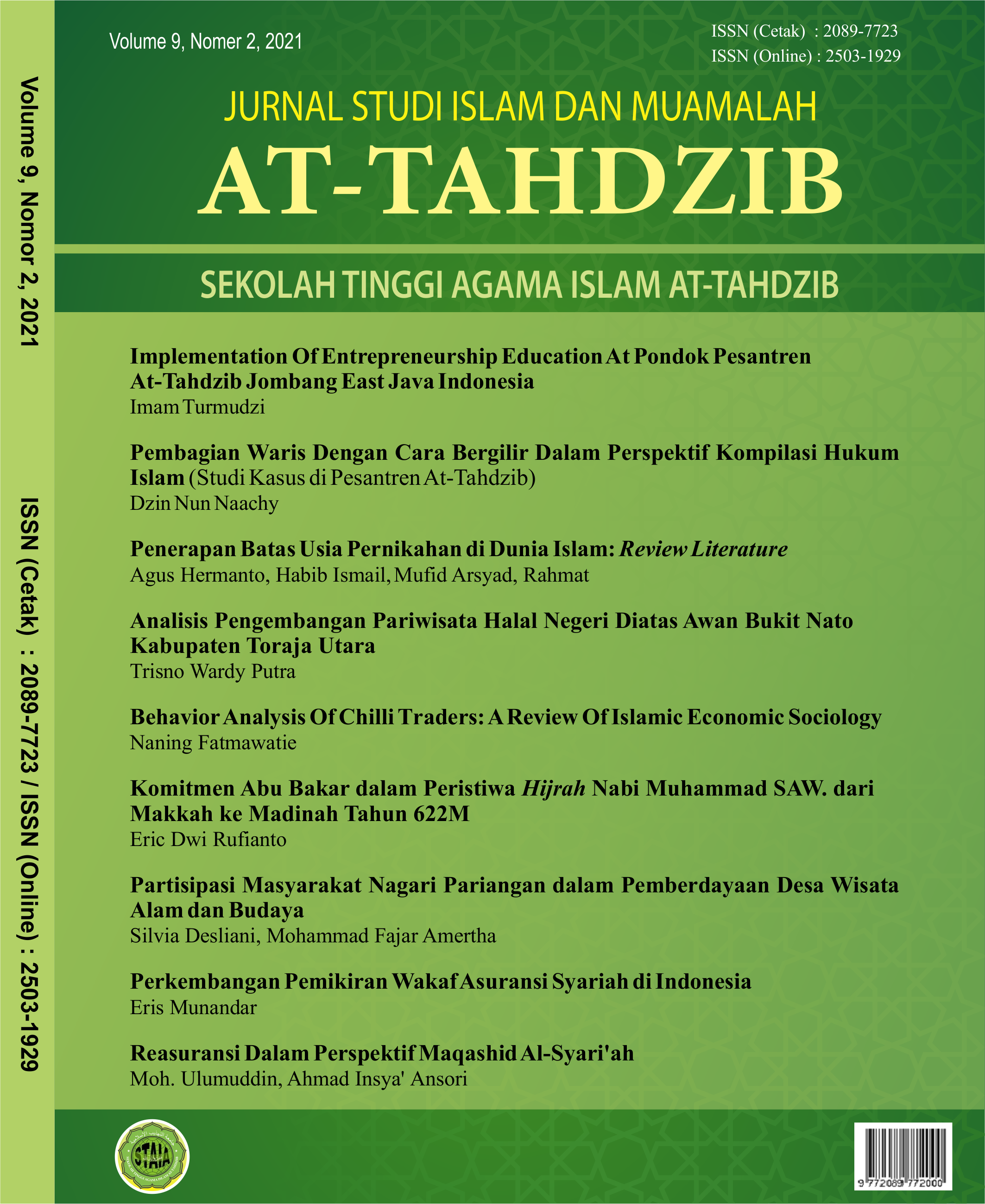Komitmen Abu Bakar dalam Peristiwa Hijrah Nabi Muhammad SAW. dari Makkah ke Madinah Tahun 622M
Abstract
Background. Member commitment is one of the key variables in determining the success of the organization. The value of members' commitment to the organization becomes a real need for da'wah organizations that carry the mission of preaching Islamic values ​​in an effort to build a good society. This study aims to examine the behavior of Abu Bakr's commitment in the event of the Prophet's migration to Medina in 622M.
Aim. Exploring the behavioral form of Abu Bakr's commitment in carrying out the task of accompanying the Prophet when he migrated to Medina. As a reference for da'wah institutions in measuring the commitment of members and the basis for forming organizational commitment to members of their da'wah
Methods. The research uses a descriptive qualitative approach and library research.
Results. Abu Bakr has implemented organizational commitment behavior that is able to make an important contribution to the journey of the existence and future of Islamic da'wah in the long term. Abu Bakr showed commitment to Islamic organizations in the form of accepting the Hijrah decision set by the Prophet, giving all the resources he had to make the Prophet's migration mission successful to Medina, and having the loyalty to continue to accompany the Prophet in whatever problem conditions/ situations the organization faced until the goal. Organization was achieved. The Prophet arrived safely in Medina.
References
Al-Mubarakfuri, Shafiyyurahman. (2013). Sirah Nabawiyah. Jakarta: Pustaka al- Kautsar.
Al-Nadwy, Abu Hasan Ali al-Hasani. (2008). Riwayat hidup Nabi, Surabaya: Bina Ilmu.
Ardts, Joost C. A., van der Velde, Mandy E. G., & Maurer, Todd J. (2010). The Influence of Perceived Characteristics of Management Development Programs on Employee Outcomes. Human Resource Development Quarterly, 21, 4, 411–434. https://doi.org/10.1002/hrdq.20055
Arikunto, Suharsimi. (1998). Prosedur penelitian: Suatu pendekatan praktek. Jakarta: Rineka Cipta.
Azwar, Syaifuddin. (2007). Metode penelitian, Yogyakarta: Pustaka Pelajar.
Chen, Zhen Xiong., Tsui, Anne S., & Farh, Jiing-Lih. (2002). Loyalty to supervisor vs. organizational commitment: Relationships to employee performance in China. Journal of Occupational and Organizational Psychology, 75, 339–356. https://doi.org/10.1348/096317902320369749
Haekal, Muhammad Husain. (2008). Sejarah hidup Muhammad. Jakarta: Litera Antar Nusa.
Hisyam, Ibnu. (2000). Sirah Nabawiyah. Jakarta: Darul Falah.
Moleong, Lexy J. (2009). Metodologi penelitian kualitatif. Bandung: Remaja Rosda Karya.
Murad, Musthafa. (2012). Kisah hidup Abu Bakar. Jakarta: Zaman.
Shallabi, Ali Muhammad Ash. (2013). Biografi Abu Bakar. Jakarta: Pustaka Al-Kautsar.
Shihab, Quraish. (2012). Membaca Sirah Nabi Muhammad SAW. Tangerang: Lentera Hati.
Song, Ji Hoon., Kim, Hong Min., & Kolb, Judith A. (2009). The Effect of Learning Organization Culture on the Relationship Between Interpersonal Trust and Organizational Commitment. Human Resources Development Quarterly, 20, 2, 147–167. https://doi.org/10.1002/hrdq.20055
Suyasa, P. Tommy Y. S., Julia A. Coawanta. (2004). Sikap terhadap budaya dan komitmen organisasi. Jurnal Psikologi, 2 (1).
Tao, Masao., Takagi, Hiroto., Ishida., Masahiro., & Masuda, Kei. (1998). A study of antecedents of organizational commitment. Japanese Psychological Research, 40, 4, 198–205. https://doi.org/10.1111/1468-5884.00094
Copyright (c) 2021 At-Tahdzib: Jurnal Studi Islam dan Muamalah

This work is licensed under a Creative Commons Attribution 4.0 International License.

Jurnal Studi Islam by At-Tahdzib is licensed under a Creative Commons Attribution 4.0 International License.
Based on a work at http://ejournal.kopertais4.or.id/mataraman/index.php/tahdzib

